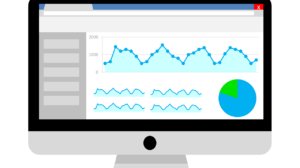In today’s digital world, access to the internet goes hand in hand with social and economic empowerment.
A huge part of this accessibility comes down to price. In other words, people who can afford to access the internet every day have a massive advantage over those who are priced out of participating in the 21st-century digital economy.
And as this latest study by Electronics Hub reveals, some countries are doing an excellent job of providing affordable internet access, while others continue to struggle with exorbitant costs that prevent widespread connectivity and further increase the disparity between the digital have’s and the digital have-not’s.
The most and least affordable countries for mobile data
The Electronics Hub researchers kicked off the study by looking at the cost of a 10GB mobile data plan relative to the national average income.
And on that scale, it turns out that nobody is getting a better deal on mobile data than those living in Israel. The price of a 10GB per month annual plan equals just 0.01% of the yearly wage for an average Israeli. It’s one of the reasons why Israel is among the best digitally connected countries in the world, with over 90% of the population having daily access to the internet.
Italy and France are two more highly connected nations where access to mobile data costs just a fraction of the average salary. Italians pay just 0.04% of the wage for an annual plan of 10GB per month. The same plan costs just 0.07% of the average salary in France.
There are several more nations where the price of mobile data works out at less than 1% of the average worker’s take-home pay. They include Australia, Finland, Denmark, and Austria.
Zimbabwe has the most expensive 10GB mobile data pack on the planet. Although calling it expensive is a bit of an understatement. Words like outrageous, astronomical, or maybe even extortionate would be more fitting. That’s because 10GB of mobile data in Zimbabwe is ‘worth’ 356% of the national salary. Like we said, an absolutely outrageous price.
And Zimbabwe is by no means the exception. Super-high data package prices are the norm across the African continent. For example, the price of 10GB annual mobile data in the Central African Republic is 334% of the average yearly income. Then there’s Zambia, where locals need to find 156% of the average salary to cover the price of a 10GB mobile deal.
Broadband prices compared to download speeds in every country
Romania isn’t the first country that comes to mind when thinking about digital innovation and connectivity. However, in terms of price per 1Mbps, it’s the best place on the planet for digital connectivity. In Romania, 1Mbps cost just $0.01.
But this will come as no surprise to those who know a little bit about Romania’s recent history and commitment to innovation.
After the fall of communism in 1989, Romania launched a huge and ambitious modernization development project, which included massive investments in telecommunications. By the early 2000s, private companies were rolling out fibre-optic networks, especially in urban areas, catapulting Romania to one of the top countries globally in terms of internet speed and value for money.
Internet access is a little more expensive in Thailand, where locals pay $0.02 per 1Mbps. Other countries in the least expensive broadband list include Moldova ($0.03), Poland ($0.03), and Slovakia ($0.04).
African countries dominate the top 10 list of the most expensive nations for broadband per 1Mbps, once again highlighting the problems (and price) of digital connectivity across the continent.
Just 1Mbps of internet in Eritrea costs $338! And it’s not like you’d even get much for your money. A 1Mbps internet connection has just enough download speeds to perform basic online activities, but your connection will still be relatively slow. And you can forget about streaming your newest favorite Netflix series. Unless you want to spend an hour watching the screen buffer.
Internet affordability around the world
The third and final part of the Electronics Hub analysis focuses on affordability. It compares the price of an annual broadband plan in every country to its national average salary.
Once again, Romania can say it has the most affordable broadband in the entire world. A year’s worth of broadband costs the average Romanian just 0.74% of their salary. In dollar terms, that’s about $60 a year for a super-fast and super-stable broadband connection.
Broadband is eye-wateringly expensive when compared to the national average salary in Burundi. This is a country where a year’s worth of broadband costs 2,935% more than what most people earn in a year. And yes, you did read that right – 2,935%.
That means the average person needs to find 29X their salary to afford broadband. This is why less than 10% of the country’s population has internet access. A 2023 Global Digital Insights report found that over 10 million people living in Burundi have never been online.





